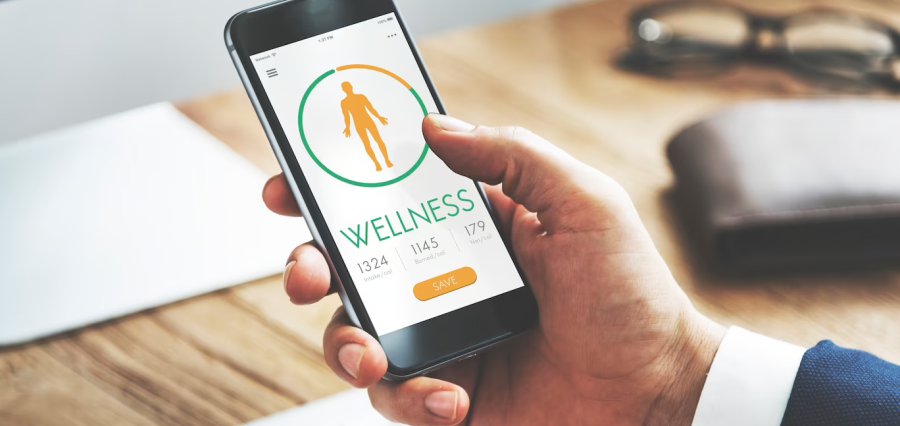In an increasingly digitalized world, where smartphones have become an integral part of our daily lives, it is no surprise that technology is being harnessed to address mental health concerns. Mobile apps and digital therapeutics have emerged as powerful tools that can enhance mental well-being, offering convenience, accessibility and personalized support to individuals seeking mental health support.
Let’s dive into details to explore how mobile apps and digital therapeutics are revolutionizing mental healthcare and empowering users to take control of their mental well-being.
The Rise of Mental Health Apps
The advent of mobile technology has brought mental health resources directly into the hands of millions. Mental health apps have gained popularity due to their ability to provide immediate assistance, support and guidance at any time and in any location. These apps cover many mental health concerns, including stress, anxiety, depression, sleep disorders, and mindfulness.
Mobile apps offer various features that contribute to mental well-being. They often provide guided meditation exercises, breathing techniques, and relaxation techniques to help individuals manage stress and anxiety. They offer mood tracking and journaling features to help users monitor their emotions and identify patterns. Some apps offer cognitive behavioral therapy (CBT) techniques and self-help resources, empowering users to challenge negative thoughts and develop healthier coping mechanisms.
Benefits of Digital Therapeutics
Digital therapeutics take mental health support a step further by offering evidence-based interventions that can be accessed through mobile apps or online platforms. These interventions are designed to complement traditional therapy or serve as standalone treatments, providing individuals with tailored support and guidance.
One of the key advantages of digital therapeutics is their ability to deliver personalized care. These platforms utilize sophisticated algorithms and machine learning to assess an individual’s specific needs and provide targeted interventions. By collecting and analyzing data, they can adapt and customize the content to suit the user’s progress and preferences, creating a more engaging and effective treatment experience.
Digital therapeutics also offer flexibility and accessibility. Individuals can access therapy sessions and interventions conveniently, eliminating barriers such as geographical distance and scheduling conflicts. This accessibility empowers users to consistently engage with therapy, ultimately improving treatment outcomes.
Promoting Self-Care and Empowerment
Mobile apps and digital therapeutics empower individuals to participate in mental health care actively. By offering educational resources, self-assessment tools, and self-guided interventions, these platforms encourage users to take ownership of their well-being.
Many apps provide psychoeducation on mental health conditions, helping users better understand their symptoms and triggers. They offer self-assessment questionnaires that allow individuals to monitor their mental health status over time and track progress. By providing this information, apps enable users to become more self-aware and make informed decisions regarding their mental health.
Moreover, mobile apps incorporate gamification and interactive elements to engage users and motivate them to continue using the app. Achievements, progress tracking, and rewards create a sense of accomplishment and reinforce positive behaviors. This approach makes mental health support more enjoyable and encourages users to follow their self-care routines.
Bridging the Gap in Mental Healthcare
Mobile apps and digital therapeutics are crucial in bridging the gap in mental healthcare, especially in areas where access to traditional therapy may be limited. They offer a scalable solution that can reach a wide range of individuals, including those who are unable to access in-person therapy due to financial, logistical, or social barriers.
These digital solutions can benefit individuals facing stigma or reluctance to seek traditional therapy. The privacy and anonymity offered by mobile apps provide a safe space for individuals to explore their mental health concerns without fear of judgment. This anonymity encourages more people to seek support and promotes early intervention, leading to better outcomes.
Tracking and Monitoring Progress
One significant advantage of mobile apps and digital therapeutics is their ability to track and monitor an individual’s progress over time. These platforms often include features that allow users to record and analyze their mental health data, providing valuable insights into their well-being journey.
By tracking mood patterns, sleep quality, stress levels, and other relevant metrics, individuals can better understand their triggers and identify potential areas for improvement. This data-driven approach helps users become more proactive in managing their mental health by making informed decisions and adjusting their self-care routines.
Moreover, sharing this data with healthcare professionals can facilitate more effective therapy sessions. By accessing accurate and up-to-date information, therapists can tailor their interventions and treatment plans to meet the individual’s needs better. This collaboration between digital tools and healthcare providers strengthens the therapeutic alliance and promotes more personalized and effective care.
Conclusion
Mobile apps and digital therapeutics are transforming the landscape of mental health care. By harnessing the power of technology, these digital solutions offer accessible, personalized, and empowering support to individuals seeking to enhance their mental well-being. While they are not a replacement for traditional therapy, they are valuable complements and can significantly improve mental health outcomes. As technology advances, it is essential to continue researching and developing innovative digital tools to ensure that mental health support remains readily available and effective for all.
Read More Articles: Click Here















